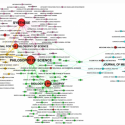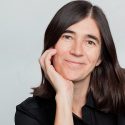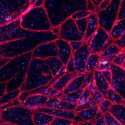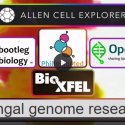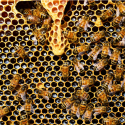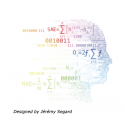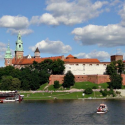Two PhD positions and one Postdoc position are open at the University of Bordeaux.
They are open to philosophers of biology or medicine and to biologists alike.
Both the PhD positions and the postdoc position are 3 year-long.
The research of the PhD students and the postdoc will be on cancer. The method will necessarily be immersive: integrated into the ImmunoConcEpT lab, the candidate will work in close collaboration with scientists from this laboratory or, depending on the choice of theme, from another partner laboratory specialized in cancer. The candidate must be able to immediately become involved in international research in the philosophy of science and take his/her place within the PhilInBioMed network.
The laureates will join the Conceptual Biology and Medicine Group, a group of philosophers embedded in a scientific lab, and the PhilInBioMed network a dynamic international network of philosophers of biology and medicine interested in practicing philosophy in a scientific environment. The working language is English and a strong interest in international collaboration is required.
The deadline for application is July 15th, 2020. The results will be known by July 25th at the latest.
To apply, material should be sent to: Maël Lemoine and Thomas Pradeu.
Candidates should send their CV and a description of the project they would like to develop in this environment (between 5 and 10 pages). Candidates should also ask 2 people they have worked with to send a letter of recommendation directly to the email addresses above.
It is highly recommanded that applicants contact us before sending their application.
PhD in Philosophy of medicine
Philosophy of medicine is now a traditional part of philosophy of science. In this domain, several authors have proposed detailed analyses of the specific case of cancer to illustrate a more general point in philosophy of medicine, for instance, the nature of classifications in medicine, the difference between function and dysfunction, the existence of theories in medicine. In contrast, few authors have so far investigated the specificity of cancer itself: for instance, the specific difficulties of the demarcation between healthy and cancerous tissue in early detection and screening; the major conceptions of the therapeutic approach to cancer, from surgery to immunotherapies; the impact on the conception of clinical trials in oncology of stratification by biomarkers of therapeutic response in personalized medicine; the strong links between models of cancer pathophysiology and implicit models of an effective therapeutic intervention. This PhD project will study the specific characteristics of cancer, from the point of view of philosophy of medicine.
PhD in Philosophy of biology
Philosophy of Biology is a classic domain of philosophy of science. Its main topics are diverse, with a majority of work focusing on evolutionary theory. Conceptual and philosophical approaches to cancer constitute an emerging trend in philosophy of biology, especially since the recent publication of several monographs. Yet, these monographs have illustrated major questions of philosophy of biology, such as the nature of multi-level explanations, reductionism, or the nature of genetic causality, rather than exploring specifically the nature of cancer as a biological phenomenon.
Among the issues that have barely been explored hitherto in philosophy of biology and could be explored by a PhD student in our lab, the following can be mentioned:
i) When and in which organisms cancer appeared in evolution?
ii) In which species "cancers" exist today?
iii) How is cancer related to multicellularity?
iv) Is cancer a decohesion of the biological individual, and if so how should this "decohesion" be understood?
v) What is the role of the immune system in the development and dissemination of cancer? Does the appearance of cancer reflect a dysfunction of immune surveillance?
More generally, any proposal of a PhD topic focusing on cancer and using the methodology of philosophy of biology and/or conceptual, theoretical and methodological approaches to the life sciences will be considered.
Postdoctoral researcher in Philosophy of biology and/or Philosophy of medicine
Philosophy of biology is a classical field of philosophy of science, and philosophy of medicine, a more recent and related field. Both have recently turned their attention to cancer, with varied contributions on topics such as: the nature of multi-level explanations, reductionism, the nature of genetic causality, the nature of classifications in medicine, the difference between function and dysfunction, the existence or not of theories in medicine. Based on his or her experience and previous work, the candidate will be interested in a major theme in the philosophy of cancer, either in the philosophy of biology or in the philosophy of medicine. Examples of such themes are the emergence of cancer during evolution, its extent in the reign of the living, its links with the most fundamental properties of a multicellular organism, the nature of its development, its relationship with the immune system, the exact nature of the "decohesion" that it operates within a living being, or the demarcation between healthy and cancerous tissue in early detection, the major conceptions of therapeutic management of cancer, from surgery to immunotherapy, the impact on the design of clinical trials in oncology of biomarker stratification of therapeutic response in "personalized medicine".
Recent publications of our group on the topic
– Rondeau E., Larmonier N., Pradeu T. and Bikfalvi A. [co-senior authors] (2019) Philosophy of biology: Characterizing causality in cancer eLIFE 8:e53755.
– Pradeu T. (2019), Philosophy of Immunology. Cambridge University Press, Elements in Philosophy of Biology Series (Open Access).
– Laplane L., Duluc D., Bikfalvi A, Larmonier N., and Pradeu T. (2019), Beyond the tumour microenvironment. International Journal of Cancer 145(10), 2611-2618.
– Lemoine M, ' Molecular complexity: Why has psychiatry not been revolutionized by genomics (yet)? ', in G. Boniolo & M. Nathan (ed), Foundational Issues in Molecular Medicine, Routledge, London, 2016, pp. 81-99.
-Lemoine M, Introduction à la philosophie des sciences médicales, Hermann, Paris, avril 2017. Deuxième édition : automne 2017.
-Lemoine M, ' Animal Extrapolation in Preclinical Studies. An analysis of the tragic case of TGN1412 ', Studies in the History and Philosophy of Biological and Biomedical Science, 61 (2017), p. 35-45.
-Lemoine M, 'Neither from words, nor from visions: understanding p-medicine from innovative treatments', Lato Sensu (en ligne).
– Pradeu T. (2019), Philosophy of Biology: Immunology and individuality, eLIFE 8:e47384.
– Laplane L., Mantovani P., Adolphs R., Chang H., Mantovani A., McFall-Ngai M., Rovelli C., Sober E., and Pradeu T. (2019), Why science needs philosophy. Proceedings of the National Academy of the Sciences USA (PNAS) 116 (10) 3948-3952.
– Laplane L., Duluc D., Larmonier N., Pradeu T. & Bikfalvi A. [co-senior authors] (2018), The Multiple Layers of the Tumor Environment. Trends in Cancer 4(12), 802-809.

